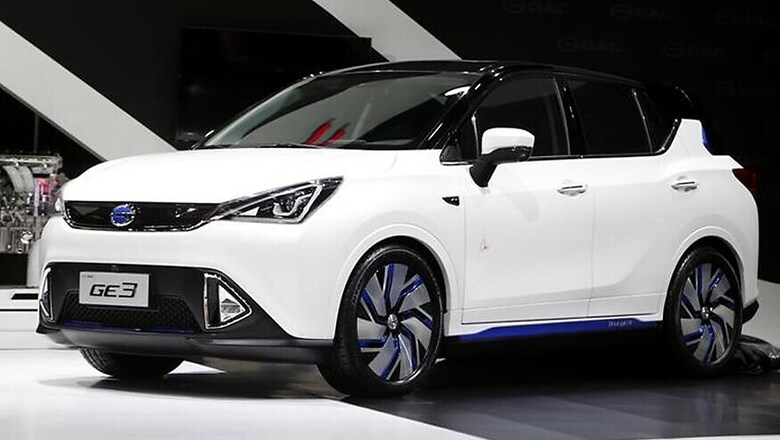
views
Global automakers are reworking their product strategies and investments for the United States to bring more sport utility vehicles to showrooms amid a sharp turn away from small- and medium-sized cars, executives at Detroit's auto show say.
Carmakers from Toyota Motor Corp to General Motors Co to Volkswagen AG are adding more SUVs to their product plans, amid forecasts that SUVs and pickup trucks could soon make up two-thirds of U.S. light vehicle sales, up from 56 percent in 2015 and just under 60 percent last year.
"The shift to trucks is profound," said Mike Jackson, chief executive of AutoNation Inc, the largest U.S. auto dealership chain.
Sedans are not only losing sales volume, but automakers and dealers are offering bigger discounts to move them out of showrooms, industry executives said. Profit margins on SUVs and trucks are fatter.
The average incentive for a midsize car in September was 14.1 percent, according to Kelley Blue Book, compared with 7.4 percent for a midsize crossover.
The shift has forced some automakers to slash production capacity dedicated just a few years ago to small cars and put a new emphasis on designing vehicles and assembly plants that can switch quickly from building cars to SUVs.
Volkswagen's Audi unit, for example, builds a small Q2 SUV and its A3 sedan on the same assembly line, Dietmar Voggenreiter, head of sales and marketing for Audi, said in an interview. "We will always have an SUV and a sedan" on the same production line, he said.
Automakers are bringing SUVs into segments that previously were only for cars.
Case in point is Nissan Motor Co's Rogue Sport, revealed on Monday at the North American International Auto Show, an Americanized version of the small Qashqai SUV Nissan has sold for several years in Europe and Asia.
"The increasing shift of cars to crossovers finally drove our decision to bring this car to the U.S.," said Michael Bunce, vice president of product strategy for Nissan's U.S. arm.
The Rogue Sport will be sold alongside the slightly larger Rogue, appealing to consumers who previously would have had only small cars to choose from.
The cars to SUV shift is hitting luxury brands, as well.
At German luxury automaker BMW last year, about 43 percent of U.S. sales were SUVs. In December, that percentage neared 50, said Ian Robertson, the German luxury brand's global sales chief.
"I think that tells you where the trend is in the U.S., probably on a 50-50 level," Robertson told Reuters.
At Toyota Motor Co, SUVs and trucks will account for about 63 percent of U.S. sales in 2017, said North America CEO Jim Lentz, predicting its RAV4 SUV could top the Camry this year as its best-selling U.S. vehicle.
Honda Motor Co is working to expand production of SUVs for the U.S. market, shifting production of the Acura MDX sport utility to a factory in Ohio to make room for additional production of higher volume Pilot SUVs and Ridgeline pickup trucks, Chief Executive Takahiro Hachigo said.
Cheap gasoline is emboldening some automakers to add more SUVs based on body-on-frame pickup truck designs - after years of shifting SUVs to lighter, car-like unitized body construction.
Ford Motor Co is reviving its Bronco SUV. It was last built in 1996 after gaining notoriety as the vehicle used during O.J. Simpson's police pursuit. Fiat Chrysler Automobiles NV on Sunday outlined plans to bring back a body on frame SUV for its Jeep line.
The focus on SUVs leaves carmakers who have an overcapacity of sedans in a weak position. Ford's announcement last week to scrap a planned Mexico factory was attributed to falling U.S. demand for sedans.
"The sedan market is under real pressure. If you don't have SUVs in all categories you are in serious difficulty," warned Lex Kerssemakers, CEO of Volvo Cars USA, whose flagship U.S. model is the XC90 SUV.
Lexus global chief Tokuo Fukuichi said the idea of building a luxury car brand around a large sedan such as the Lexus LS unveiled in Detroit is now "under assault."
Mark Reuss, head of global product development, said the automaker is looking for ways to offer attributes of SUVs in more designs that are more innovative than the square-backed vehicles that dominate the category now.
"You'll see them in the next year," he said, vehicles that offer "an alternative to a box."


















Comments
0 comment